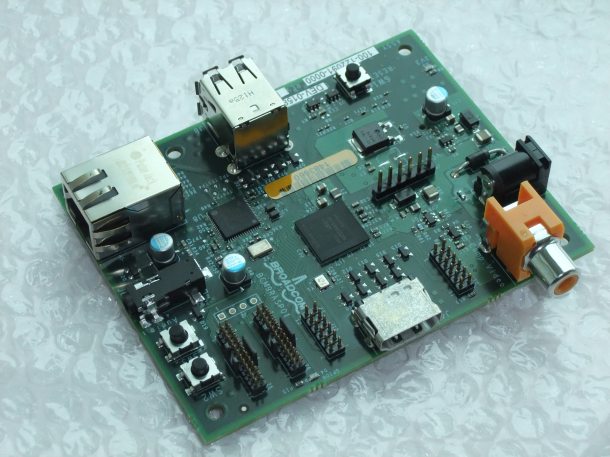Snag puts Raspberry Pi back on hold

The credit-card-sized $35 computer, which is intended to teach students about programming, saw such demand on its launch a month ago that it crashed the sales sites of distributors RS Components and element14/Premier Farnell. A component mix-up in production then caused a delay earlier this month.

The Raspberry Pi Foundation, which revealed the latest hitch in a blog post on Wednesday, said it did not believe the tiny, uncased computer should have to have the mark. It noted that a similar, albeit more expensive, product called the Beagleboard is allowed to be sold without CE certification.
"As we've said before, we believe that the uncased Raspberry Pi is not a 'finished end product', and may be distributed on the same terms as Beagleboard and other non-CE-marked platforms," Foundation spokeswoman Liz Upton wrote.
Electromagnetic emissions
The problem comes down to the issue of electromagnetic emissions. Products that are only intended for further development, where those using them will be able to test and monitor the emissions, can be sold without the CE mark — or, in the US, the FCC mark. Products sold to end users without those facilities must first be officially approved as being safe.
According to Upton, the Raspberry Pi should be able to gain approval. She said it just needs the results of further electromagnetic tests to do so, or the intervention of the Department for Business, Innovation and Skills (BIS) to confirm that the device does not need the CE mark.
"On the basis of preliminary measurements, we expect emissions from the uncased product to meet category A requirements comfortably without modification, and possibly to meet the more stringent category B requirements which we had originally expected would require a metalized case," she wrote.
"We're also talking to the Department for Business, Innovation and Skills (BIS), to better understand the terms under which devices like Beagleboard are permitted to ship to domestic end users in the UK, and to obtain a definitive statement as to whether we can distribute on the same terms," Upton added.
However, BIS said on Thursday that the Raspberry Pi must undergo the certification process.
"We have advised the makers of Raspberry Pi that their product falls under the electromagnetic compatibility legislation and therefore needs to carry the CE marking," a BIS spokesman told ZDNet UK.
'Oversight'
In the lengthy comments thread attached to the post, Foundation trustee Eben Upton explained why this problem was not spotted before it arose. He said it was "basically an oversight" that the Foundation and its distributors did not cover the CE issue in the contractual stage.
Several commenters also suggested that the Beagleboard team may be wrong in marketing their product as a "development board", a tactic that allows it to bypass the certification issue.
In a "http:="" www.raspberrypi.org="" archives="" 913"="">separate post on Thursday, Upton also noted that a computer glitch with distributor element14 had resulted in some customers being told their delivery date was being pushed back to August.
"At present, as already communicated by Raspberry Pi, all deliveries are on hold awaiting the outcome of the compliance testing currently taking place. To avoid misleading people while the compliance testing takes place, our system auto-generated the August date, which has clearly caused confusion," a note from the distributor, quoted by Upton, read.